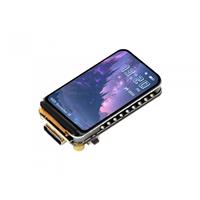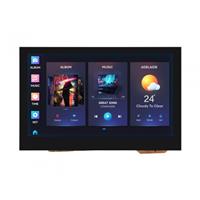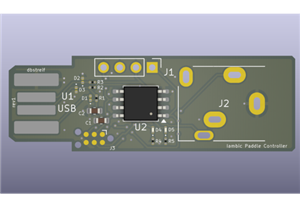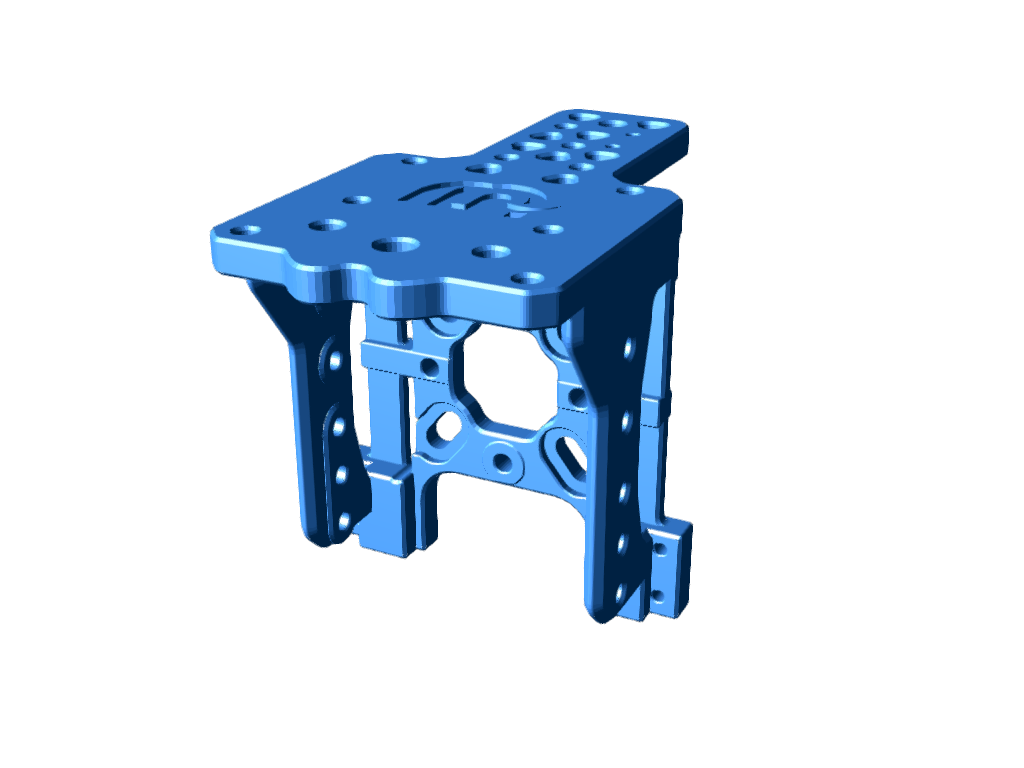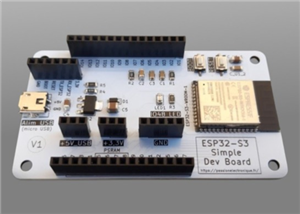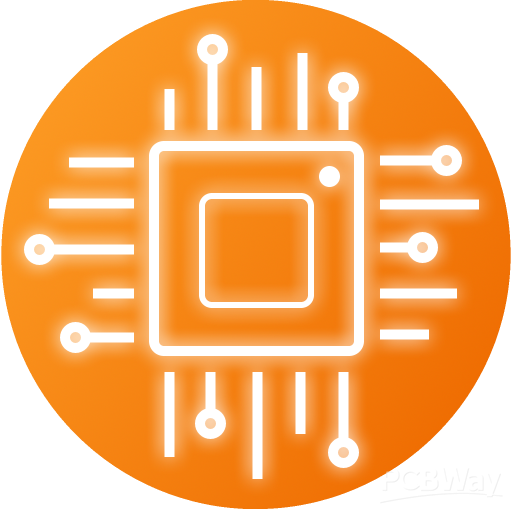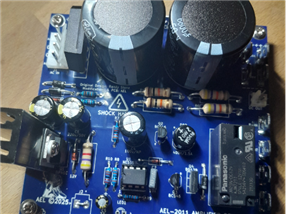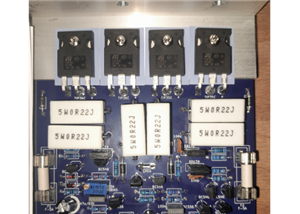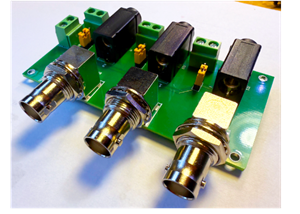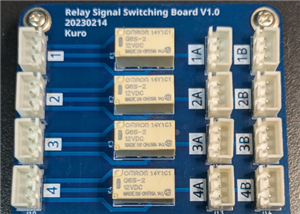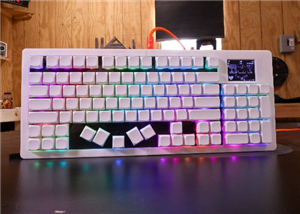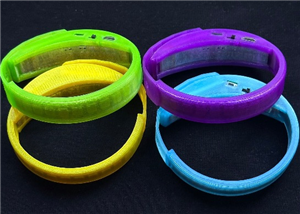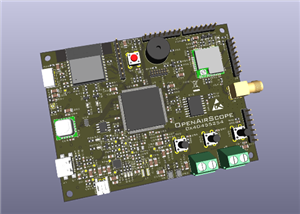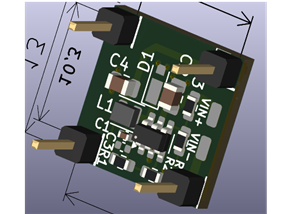How to design own Buck Converter. (12v - 5v)
Introduction
A Buck Converter is a type of DC-DC converter that can step down (i.e., reduce) a higher voltage to a lower voltage. It is a popular choice for power electronics applications because it is efficient and relatively simple to implement.
Buck Converters are commonly used in a variety of applications, including power supplies for computers, mobile devices, and LED lighting, as well as in automotive and industrial applications. They are known for their high efficiency, small size, and low cost.
Working Principle of Buck Converter
The working principle of a Buck Converter involves the conversion of a higher voltage to a lower voltage through a series of switches, inductors, and capacitors. The basic operating principle of a Buck Converter is as follows:
The input voltage is connected to a switch (usually a MOSFET), which is controlled by a control circuit.
When the switch is closed, the input voltage is applied across the inductor, which starts to store energy in the form of a magnetic field. When the switch is opened, the stored energy in the inductor is released, and the energy is transferred to the output capacitor and load.

The output voltage is regulated by adjusting the duty cycle of the switch. The duty cycle is the ratio of the time that the switch is closed to the time that it is open.
By varying the duty cycle, the output voltage can be maintained at a constant level, even when the input voltage or load changes.
Overall, the Buck Converter works by converting the higher voltage input to a lower voltage output by controlling the switch's duty cycle to regulate the output voltage. This results in an efficient, cost-effective, and reliable power conversion solution suitable for a wide range of applications.
FULL PROJECT ON :
https://electronicsworkshops.com/2023/04/16/how-to-design-own-buck-converter-12v-5v/
How to design own Buck Converter. (12v - 5v)
*PCBWay community is a sharing platform. We are not responsible for any design issues and parameter issues (board thickness, surface finish, etc.) you choose.
- Comments(0)
- Likes(1)
-
 Engineer
Aug 30,2025
Engineer
Aug 30,2025
- 0 USER VOTES
- YOUR VOTE 0.00 0.00
- 1
- 2
- 3
- 4
- 5
- 6
- 7
- 8
- 9
- 10
- 1
- 2
- 3
- 4
- 5
- 6
- 7
- 8
- 9
- 10
- 1
- 2
- 3
- 4
- 5
- 6
- 7
- 8
- 9
- 10
- 1
- 2
- 3
- 4
- 5
- 6
- 7
- 8
- 9
- 10
 More by Rabin Poudel
More by Rabin Poudel
-
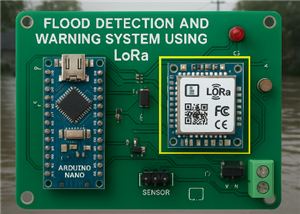 Flood Detection and warning system using LORA and Arduino
IntroductionFloods are one of the most devastating natural disasters, causing immense damage to life...
Flood Detection and warning system using LORA and Arduino
IntroductionFloods are one of the most devastating natural disasters, causing immense damage to life...
-
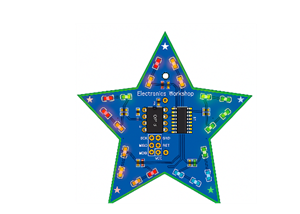 DIY LED Decoration Tiny Star PCB Project
IntroductionThe Tiny Star PCB is a small and fun DIY electronics project that is perfect for hobbyis...
DIY LED Decoration Tiny Star PCB Project
IntroductionThe Tiny Star PCB is a small and fun DIY electronics project that is perfect for hobbyis...
-
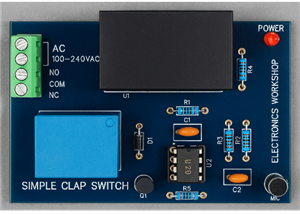 Simple and Cheap Clap Switch Circuit
IntroductionThe Simple and Cheap Clap Switch Circuit is a practical and fun DIY electronics project ...
Simple and Cheap Clap Switch Circuit
IntroductionThe Simple and Cheap Clap Switch Circuit is a practical and fun DIY electronics project ...
-
 Arduino-based Mist Maker and Hand Dryer
IntroductionIn today’s world, automation and hygiene have become essential, especially in public pla...
Arduino-based Mist Maker and Hand Dryer
IntroductionIn today’s world, automation and hygiene have become essential, especially in public pla...
-
 MPL3115A2 Barometric Pressure, Altitude, and Temperature Sensor
IntroductionThe MPL3115A2 is a highly accurate, low-power digital barometric pressure sensor from NX...
MPL3115A2 Barometric Pressure, Altitude, and Temperature Sensor
IntroductionThe MPL3115A2 is a highly accurate, low-power digital barometric pressure sensor from NX...
-
 E-Speaker Using ESP32
IntroductionThe E-Speaker is a smart, portable, and versatile audio system built using the ESP32 mic...
E-Speaker Using ESP32
IntroductionThe E-Speaker is a smart, portable, and versatile audio system built using the ESP32 mic...
-
 Heart Rate Monitor Circuit Using Photoplethysmography (PPG)
IntroductionHeart rate is a vital physiological parameter that reflects the health and fitness of an...
Heart Rate Monitor Circuit Using Photoplethysmography (PPG)
IntroductionHeart rate is a vital physiological parameter that reflects the health and fitness of an...
-
 Automated Greenhouse Control System using ESP32
IntroductionAn automated greenhouse control system leverages technology to optimize plant growth con...
Automated Greenhouse Control System using ESP32
IntroductionAn automated greenhouse control system leverages technology to optimize plant growth con...
-
 STD CH330N USB to Serial Converter 5V
IntroductionThe CH330N is a versatile USB-to-serial converter chip that simplifies interfacing betwe...
STD CH330N USB to Serial Converter 5V
IntroductionThe CH330N is a versatile USB-to-serial converter chip that simplifies interfacing betwe...
-
 KY-032 Obstacle avoidance sensor module
IntroductionIntroduction to Obstacle Avoidance SensorsObstacle avoidance sensors are essential compo...
KY-032 Obstacle avoidance sensor module
IntroductionIntroduction to Obstacle Avoidance SensorsObstacle avoidance sensors are essential compo...
-
 BC547 BASED WATER LEVEL INDICATOR
IntroductionA water level indicator using a BC547 transistor is a simple and effective electronic pr...
BC547 BASED WATER LEVEL INDICATOR
IntroductionA water level indicator using a BC547 transistor is a simple and effective electronic pr...
-
 How to Design Own Arduino Wifi shield PCB
OverviewArduino wifi shield connects the Arduino with a wifi chip through the serial communication p...
How to Design Own Arduino Wifi shield PCB
OverviewArduino wifi shield connects the Arduino with a wifi chip through the serial communication p...
-
 DIY Air Quality Tester
OverviewIn this project “DIY Air Quality Tester” we use Node MCU microcontroller and air quality sen...
DIY Air Quality Tester
OverviewIn this project “DIY Air Quality Tester” we use Node MCU microcontroller and air quality sen...
-
 Digital Clock Using Arduino
OverviewIn this project, “Digital clock using Arduino” we will make a PCB board for digital clock an...
Digital Clock Using Arduino
OverviewIn this project, “Digital clock using Arduino” we will make a PCB board for digital clock an...
-
 Bluetooth Controlled car using Arduino
OverviewA Bluetooth Controlled Car Using Arduino is a fascinating DIY project that involves building...
Bluetooth Controlled car using Arduino
OverviewA Bluetooth Controlled Car Using Arduino is a fascinating DIY project that involves building...
-
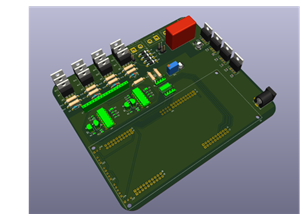 Inverter Circuit Using LaunchXL F28379D
IntroductionIn this project, we design and implement a DSP-controlled inverter circuit using the Lau...
Inverter Circuit Using LaunchXL F28379D
IntroductionIn this project, we design and implement a DSP-controlled inverter circuit using the Lau...
-
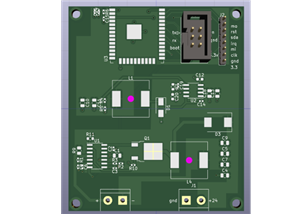 IoT-Based Automatic Street Light Controller Using ESP32
IntroductionThis system uses ESP32 modules to control street lights through a centralized IoT server...
IoT-Based Automatic Street Light Controller Using ESP32
IntroductionThis system uses ESP32 modules to control street lights through a centralized IoT server...
-
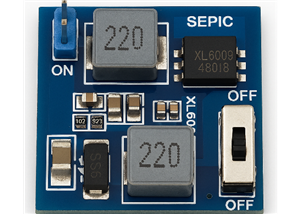 SEPIC DC-DC Converter Using the MT3608 Boost IC
IntroductionModern electronic design must prioritize effective and adaptable power management, parti...
SEPIC DC-DC Converter Using the MT3608 Boost IC
IntroductionModern electronic design must prioritize effective and adaptable power management, parti...
-
-
mammoth-3D SLM Voron Toolhead – Manual Drill & Tap Edition
207 0 0 -
-
AEL-2011 Power Supply Module
730 0 2 -
AEL-2011 50W Power Amplifier
607 0 2 -
-
-
Custom Mechanical Keyboard
812 0 0 -
Tester for Touch Screen Digitizer without using microcontroller
438 2 2 -
Audio reactive glow LED wristband/bracelet with NFC / RFID-Tags
391 0 1 -
-




















